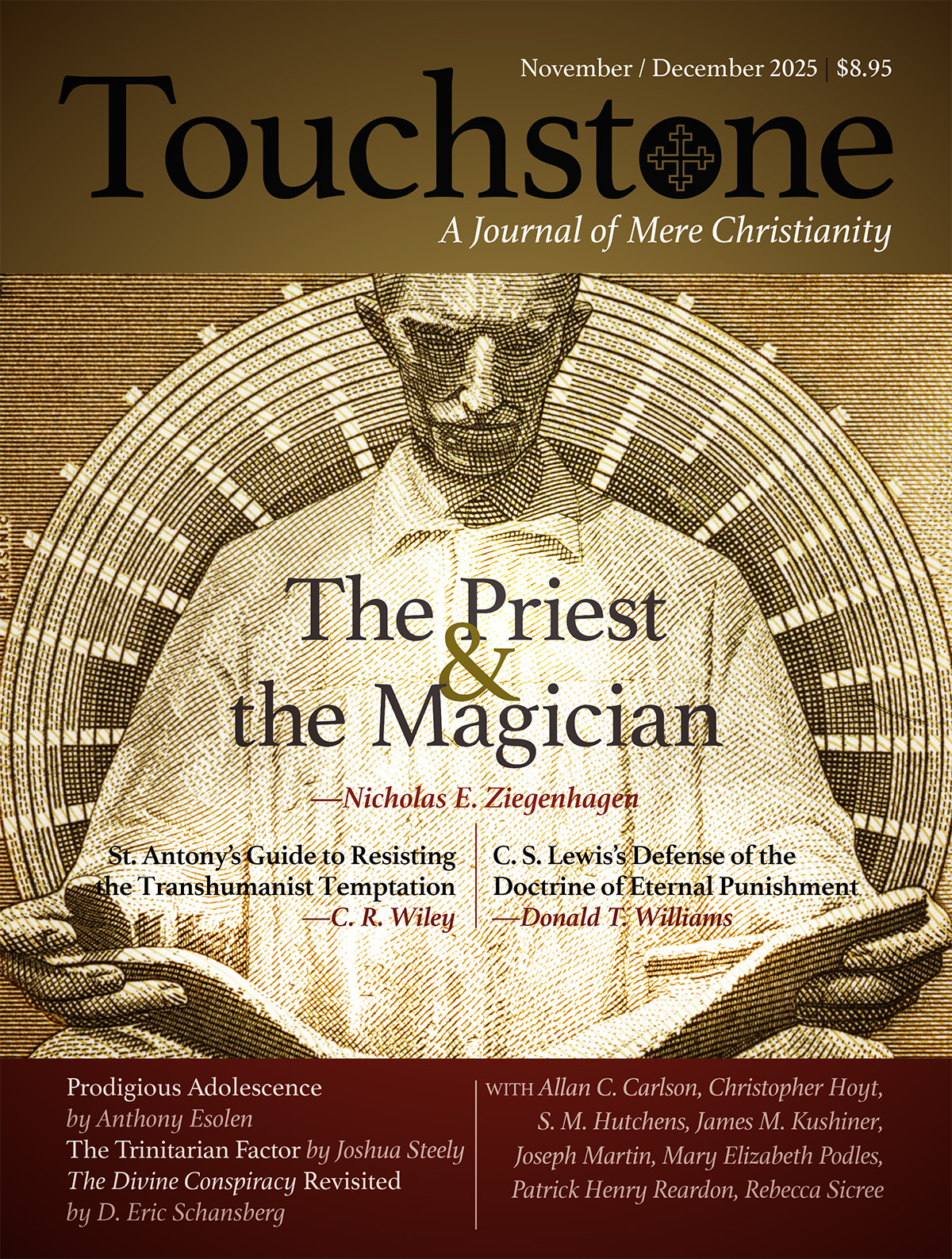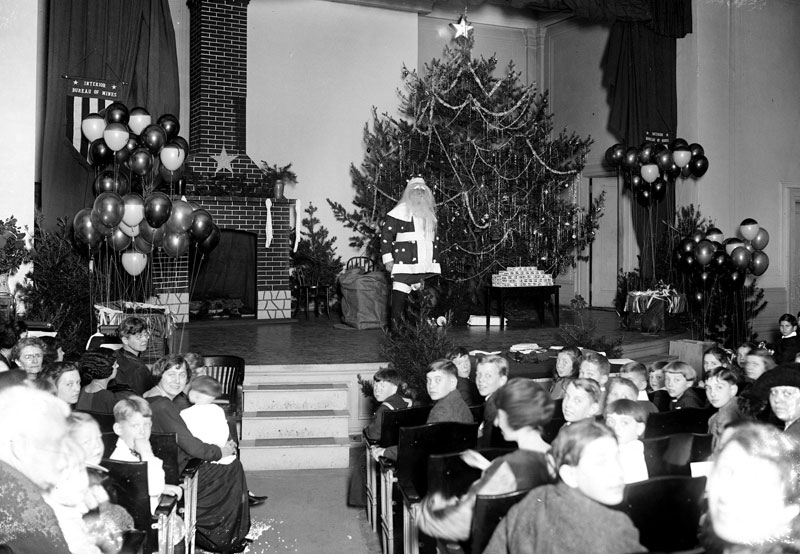Four Feasts
St. Paul, writing with the urgency that comes from seeing, while others are busy in their lassitude because they have not seen, exhorts the Christians at Ephesus to “redeem the time, because the days are evil” (Eph. 5:16). What might it mean, in the season of Christmas, to redeem that time, or to redeem time itself, in those days of joy? We know how Christmas is celebrated in the United States, both by people who have no hope in God and by us, who have likewise exhausted ourselves in the purchase of gifts. It’s a race against the calendar, a secular calendar made up only of numbers, and when the day is over, the decorations begin to come down. “Christmas is for family,” somebody on a saccharine television show will say, when the intended audience is mostly female, while the men watch a football game, and children play with or quarrel over their new toys, irritable from the bustle and lack of sleep. It’s a day, and that’s all, and parents are glad when it’s over.
The Church knows better, but it is not clear how much of her ancient knowledge is now imparted even to those who show up for services on Christmas. One sign that she knows better is found in her calendar—though we ought to have a different word for it besides “calendar,” which has had all the life drained from it. Whatever we call it, it is her yearly time that springs from eternity, that revolves about it, and that will be con-summated in it. Thus do those Christian communions that attempt to redeem time in the celebration of an or-derly succession of days place Christmas at the head of martyrdom, vision, and mystery.
St. Stephen
December 26 is overwhelmed by 25. But St. Stephen’s day proceeds from Christmas as full morning follows the dawn. Stephen is the protomartyr, the first man to bear witness to Christ by dying, and therefore the first man to be born into glory as paying the ultimate price for his testimony. Christian art has often portrayed him as a young man, full of youthful zeal. For Dante, Stephen is an exemplar of meekness:
THIS ARTICLE ONLY AVAILABLE TO SUBSCRIBERS.
FOR QUICK ACCESS:
Anthony Esolen is Distinguished Professor of Humanities at Thales College and the author of over 30 books, including Real Music: A Guide to the Timeless Hymns of the Church (Tan, with a CD), Out of the Ashes: Rebuilding American Culture (Regnery), and The Hundredfold: Songs for the Lord (Ignatius). He has also translated Dante’s Divine Comedy (Random House) and, with his wife Debra, publishes the web magazine Word and Song (anthonyesolen.substack.com). He is a senior editor of Touchstone.
subscription options
Order
Print/Online Subscription
Get six issues (one year) of Touchstone PLUS full online access including pdf downloads for only $39.95. That's only $3.34 per month!
Order
Online Only
Subscription
Get a one-year full-access subscription to the Touchstone online archives for only $19.95. That's only $1.66 per month!
bulk subscriptions
Order Touchstone subscriptions in bulk and save $10 per sub! Each subscription includes 6 issues of Touchstone plus full online access to touchstonemag.com—including archives, videos, and pdf downloads of recent issues for only $29.95 each! Great for churches or study groups.
Transactions will be processed on a secure server.
more from the online archives
calling all readers
Please Donate
"There are magazines worth reading but few worth saving . . . Touchstone is just such a magazine."
—Alice von Hildebrand"Here we do not concede one square millimeter of territory to falsehood, folly, contemporary sentimentality, or fashion. We speak the truth, and let God be our judge. . . . Touchstone is the one committedly Christian conservative journal."
Support Touchstone
—Anthony Esolen, Touchstone senior editor










